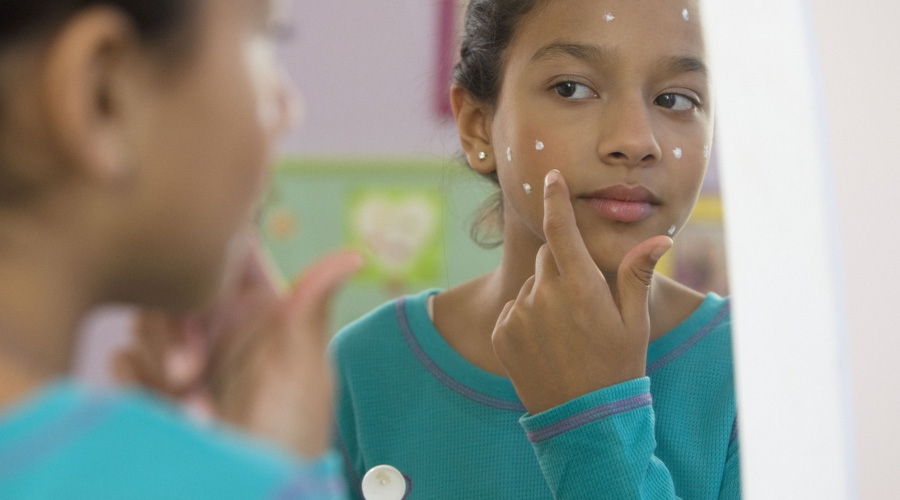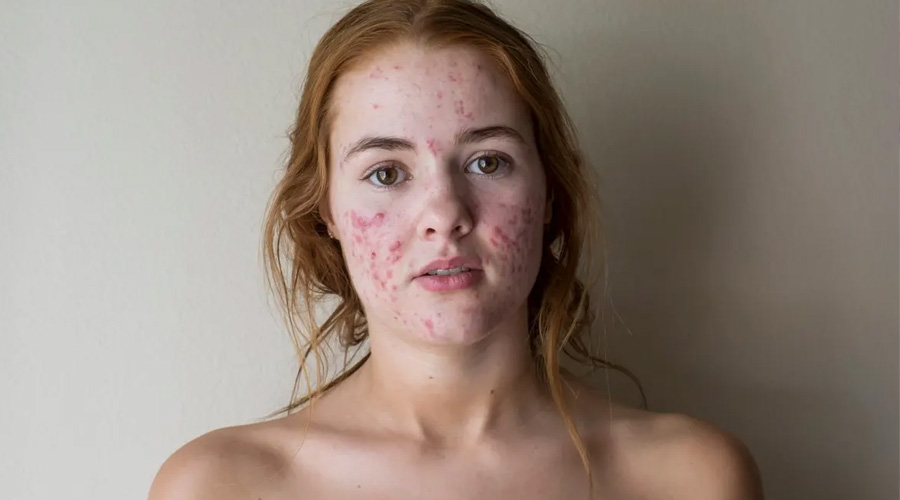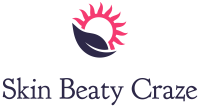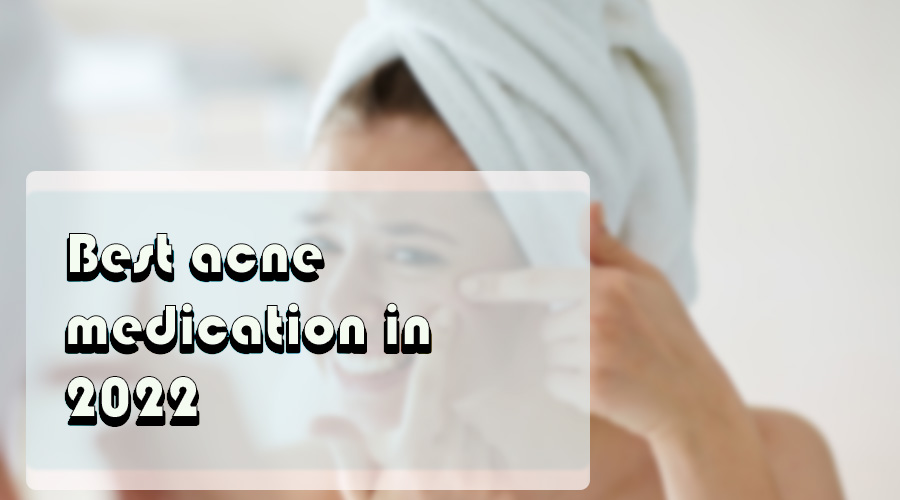Acne is a common skin condition that can be treated with a variety of medications and treatments. Acne is caused by the overproduction of oil and sebum (fluids that accumulate on the skin) by the sebaceous gland.
There are a variety of acne medications on the market, and each one has its own set of side effects and benefits. Acne medication can come in a variety of forms, including pills, creams, gels, and liquids. Some of these medications, such as benzoyl peroxide or retinoids. Another popular treatment is Accutane, a prescription acne medication.
Benzoyl peroxide is a peroxide-based compound that has been used for many years as a skin lightener and acne medication. It is effective in removing the outer layer of skin cells, which may help to treat acne. Benzoyl peroxide also helps to improve skin tone and clarity. It is an over-the-counter product.
Aside from benzoyl peroxide, there are many other types of treatment. Topical medications work by killing the bacteria that is responsible for causing acne, while oral acne medications work by preventing the production of sebum. They can treat inflammatory acne. Some acne medications also work to reduce oil production on the skin. In this article, the different acne medications will be tackled. Please get going to know the best acne medication in 2022.
Topical acne treatment

Topical treatments can come in medication, cream, ointment, or other substance that is applied to the skin. Topical medications are used to treat problems such as redness, itchiness, or dryness, which are the common side effects of acne. Topical acne treatments are easily accessible to alleviate acne problems. The following are some of the best topical acne treatments.
Salicylic acid
Salicylic acid is a derivative of aspirin and is used topically to treat acne, psoriasis, and other skin conditions. It is also used as an oral drug to reduce the symptoms of arthritis. Salicylic acid works by breaking down skin cells that are responsible for acne.
Salicylic acid is a medication often used to alleviate acne. It works by killing the bacteria that is causing the skin problem. Salicylic acid is available over the counter and in some prescription medications. It may also be used in combination with other types of acne medication.
Antibiotics
Antibiotics are a type of medication that kills or stops the growth of bacteria. Certain types of antibiotics can also treat other conditions. Antibiotics are available as over-the-counter drugs and in prescription forms. They are most effective when taken after an infection has started but before it spreads to other parts of the body.
Topical antibiotics are drugs that kill bacteria. They are most often used to treat infections, but they can also be used for acne. Acne is a skin condition that is caused by the overproduction of sebum (a type of oil) and the accumulation of dead skin cells. The use of antibiotics can help clear up acne by killing the bacteria responsible for causing the condition.
Retinoids
Retinoids are a class of drugs that have been used to treat skin conditions such as acne and psoriasis for many years. They work by killing the cells that produce oil and skin cells, which reduces the amount of oil and skin cells produced. Retinoids also promote healthy cell growth.
Retinoid is an acne medication that works by decreasing the amount of oil and bacteria in the skin. They are safe and effective treatments for acne, but they can have side effects. Retinoids should not be used by people who are pregnant or breastfeeding because they can cause birth defects.
Clascoterone
Clascoterone is a drug that has been shown to be effective in the treatment of depression and anxiety. It is also known to be an effective pain reliever. Clascoterone is a derivative of the steroid testosterone and works in similar ways to estrogen.
Clascoterone is a new acne treatment that has shown promising results in late-stage clinical trials. It is a topical cream that is applied to the skin once daily and appears to be effective in treating mild to moderate acne. Clascoterone has also been shown to be safe and well-tolerated, with no reported side effects.
Dapsone
Dapsone is a medication that is used to treat a variety of skin conditions. It works by blocking the action of proteins that cause skin irritation and inflammation from inflammatory acne, for example. Dapsone is usually used in combination with other medications to treat various skin conditions.
One acne treatment option that is gaining popularity is dapsone. Dapsone is a natural product that has been used to treat skin conditions for decades. It works by reducing the number of acne-causing bacteria. Some side effects of dapsone treatment may include dryness, peeling, and skin irritation.
Azelaic acid
Azelaic acid, a naturally occurring compound found in grains, fruit, and vegetables, has been shown to be an effective treatment for acne. The medication is available over the counter in the form of creams and gels. It works by destroying the cells that cause acne while leaving the skin smooth.
Azelaic acid is a medication used to alleviate acne because it helps to decrease the production of sebum. Azelaic acid works by breaking down the cells in the skin that produce sebum, which then reduces the amount of oil and dirt on the skin.
Oral acne treatment

Oral treatment is one option for treating acne, but it is not always the best option. Some people find that oral medications work well for them, while others have difficulty using them or do not see any benefits. It is important to note that acne problems have different severities and treatments work differently for each individual. Here are some of this year’s most popular oral acne treatments:
Isotretinoin
Isotretinoin is an acne medication that is used to treat severe acne. It is a retinoid, which is a type of drug that helps to reduce the amount of oil and bacteria on the skin. Isotretinoin, as an oral acne medication, can take several months to work, but it can be very effective in clearing acne. Side effects include dryness, redness, scaling, and peeling.
Contraceptives
An oral contraceptive is one of the birth control pills that work by preventing ovulation. When there are no chances of pregnancy, the skin’s oil production decreases, which can help to reduce the amount of sebum produced. Some people with acne may find that using oral contraceptives is helpful in managing their condition because they help to reduce the amount of oil produced on the skin. Birth control pills can also help to prevent hair follicles from growing in areas where hair is sensitive.
Antibiotics
There are many oral antibiotics that are FDA-approved for the treatment of acne. Examples of these oral antibiotics include erythromycin (E.M.), clarithromycin (C.M.), and azithromycin (A.Z.). Antibiotics, as an oral acne medication, work by killing the bacteria that is causing the acne. Some people may experience side effects from oral antibiotics, but most people find them to be effective in treating their acne. Before taking oral antibiotics, always consult your physician.
Spironolactone
Oral spironolactone is a commonly prescribed oral medication for treating acne. It works by decreasing the production of sebum and Propionibacterium acnes. Spironolactone is generally well-tolerated, but can cause side effects such as gynecomastia and water retention. There is some evidence that oral spironolactone may be more effective than topical treatments for reducing acne lesions, but more research is needed to confirm this.
Treating severe acne

Acne is a common skin condition that can involve severe lesions. The severity of acne can be determined by the number, size, and color of the lesions. Acne can affect people of any age but is more common in adolescents and young adults. There is no single cause for acne, but it is usually caused by inflammation of the skin. Acne treatments vary depending on the different severity of the condition, but typically involve topical medications and/or surgery.
The most common type of acne is called moderate to severe acne. It usually affects people between the ages of 12 and 25, but it can also happen at any age. There can be mild acne or severe acne. Severe acne can cause serious problems such as scarring, depression, and anxiety. If you have severe acne, you should see a doctor.
Conclusion
In conclusion, the best acne medication in 2022 is still undetermined. Essentially, treatments work uniquely depending on the person’s health and their kind of acne concern. However, there are many promising treatments that are being developed and studied. It is important to consult a dermatologist to find the best treatment for each individual’s acne. There are many available treatments that can help clear acne, and most people can find one that works well for them.
FAQ
Is there a pill to get rid of acne?
Acne is a common skin disorder that affects people of all ages. It’s caused by excess oil and bacteria on the skin, which can lead to pimples, cysts, and scars. There is a variety of over-the-counter (OTC) medications for acne available, but many people find them ineffective or too harsh. A new study suggests that there may be a pill that can help treat acne permanently.
The study found that a drug called Apremilast significantly reduced the number of pimples and prevented them from returning in adults who took it for 12 weeks. Although more research is needed to confirm these findings, this could be an exciting new avenue for treating acne in the future.
What would a dermatologist prescribe for acne scars?
Acne scars can be frustrating and difficult to treat. A dermatologist might prescribe a variety of procedures and medications for acne, depending on the severity and location of the scars. These treatments may include scar-lightening treatments, fillers, lasers, or surgical procedures such as dermabrasion or resurfacing. Oftentimes, over time, the scars will fade with regular use of these treatments.
Is it good to take pills for acne?
According to some, taking pills for acne is a good solution to the problem. These pills contain a mixture of ingredients that are supposed to help clear skin and prevent future breakouts. However, not all people agree that this is the best course of action. Some feel that using topical medications for acne or topical masks are just as effective and often more affordable.
What is the safest pill to take for acne?
Acne is a common skin condition that can be treated with different medications and treatments. There are many acne medications on the market, but which one is the safest for you? In this article, we will discuss the different acne medications and their safety profiles. We will also recommend the safest medication for each type of acne.
What do doctors prescribe for cystic acne?
Cystic acne is a type of acne that is characterized by the presence of cysts. Cysts are inflamed collections of oil and dead skin cells. The most common medications prescribed for cystic acne are antibiotics and topical treatments. Antibiotics work by killing the bacteria responsible for the inflammation, while topical medications for acne work to reduce the amount of oil production and inflammation.
There are many different types of acne, but severe cystic acne is the most severe. This type of acne is characterized by large, inflamed pimples that may develop deep into the skin. Severe cystic acne can be very difficult to treat and can be a serious health problem.


